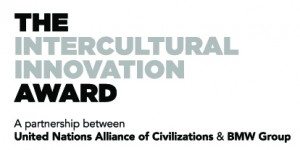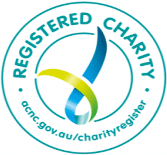All Together Now has made a submission to the Attorney General regarding proposed changes to the Racial Discrimination Act.
All Together Now rejects the proposed law and would like to emphasise the significant harm that racist hate speech of all kinds has in our community. You can read All Together Now’s reservations to the proposed law below.
If you have your own opinion on the proposed law, email your response to: [email protected]. You may use All Together Now’s response as a guide for your own submission. The Human Rights Law Centre has produced a fantastic information paper which we also suggest you read before you make your submission.
—
All Together Now’s submission
All Together Now expresses deep concern over the proposed changes to the Racial Discrimination Act.
We believe that the proposed changes do not get the balance right in protecting free speech and protecting everyone’s right to be free from being exposed to racial hate speech. We are concerned that the changes will have a destructive effect on Australian society at large, and in particular on racial and ethnic minority groups.
The Facts
Last year, verbal racial abuse affected 1 in 5 Australians[i]. Verbal abuse is the most common form of racism[ii].
There has been a 59% increase in complaints of racial abuse to the Australian Human Rights Commission over the past year, with nearly half of these being complaints about cyber-racism[iii].
Racial abuse is particularly damaging to Aboriginal and Torres Strait Islander communities, the First Australians. 75% of Aboriginal people regularly experience racism[iv].
Racism is also very harmful to new migrants, who are often targeted because English is not their first language[v].
Many cultural minority groups are the targets of “offensive” hate speech in public places. The Scanlon Foundation’s Recent Arrivals Report[vi] found that racism is one of the top three concerns of new migrants.[vii] Many who travel to Australia are put off by stories of racial abuse in public and this has a negative impact on our international reputation, and the tourism industry.
All Together Now’s view
All Together Now is the only national racism prevention charity in Australia. Antiracism is our core business, and we constantly hear stories of racism and racial discrimination from Australian residents.
People from culturally and linguistically diverse groups and Aboriginal and Torres Strait Islander peoples want to be free from verbal insults and offensive comments when walking down the street, when on public transport, in the workplace and online. Never mind when they are reading the newspaper, listening to the radio or watching television shows.
All Together Now believes that adopting the higher thresholds of “vilify” and “intimidate” of the draft proposal will exacerbate the problems of racism described above by effectively removing people’s fundamental protection from racial hatred. Adopting these new thresholds will put perpetrators in a stronger position, which can be exploited.
i) Psychological Harm:
All Together Now is particularly concerned that section 2(b) of the proposed Bill focuses on physical harm while ignoring psychological harms that many targets of racism experience.
Australian research has found that a range of health problems including:
- High blood pressure and heart disease,
- Depression,
- Anxiety,
- Low birth rate and
- Premature birth
can be directly attributed to people’s personal experiences of racism[viii].
These tangible, psychological effects are often triggered by verbal racial abuse. The fact that these are not catered to at all in the proposed Bill is a worrying oversight. Psychological harm can often have a longer, and more pervasive affect than physical injury.
By focusing on physical harm, sections 1 and 2 of the proposal ignore that the most common type of racism in Australia is racist hate speech and exclusion on the basis of race, ethnicity or cultural background[ix]. In fact, it is racial hate talk that divides and fractures our communities, and has tangible psychological affects on its members.
The proposed changes therefore go too far in removing protections of racial minorities from hate speech in public places.
ii) Company Policy and Racial Discrimination:
All Together Now is also concerned that employees who face racial discrimination in the workplace will be left unprotected if the proposed law is enacted. Ramifications of the above mentioned psychological and physical effects of racism in the workplace include increased absenteeism and decreased productivity, both of which add to the cost of running a business and affect the broader Australian economy.
Employees who face racial discrimination in the workplace have two options: action under company policy, or under the Racial Discrimination Act. Yet many companies do not have grievance procedures relating specifically to racism, but rather focus more broadly on bullying and workplace harassment.
Workers who are left to take action under the Racial Discrimination Act, for say, verbal racial abuse in the workplace, generally find recourse under section 18C.
If section 18C is abolished then workers will have recourse to company policy alone, which may or may not include protections against racial slurs. We can’t rely on organisations (particularly small businesses) to have their own comprehensive policies to protect people against verbal racial abuse. Rather, this is the mandate of the law: to protect people who are vulnerable and at risk of psychological harm in the workplace.
iii) Cyber-Racism:
All Together Now is concerned that the impact of the existing Racial Discrimination Act, and any amendments to that Act, on activities which take place on the Internet (for example on social networking sites) is not widely known within the Australian community.
The Australian Human Rights Commission reports 41% of complaints lodged relate to internet hate or cyber racism.[x]
We suggest that more work needs to be done to raise awareness of the application of the Racial Discrimination Act to expressions of racism online as well as how the Act can be enforced in this context. The effects of cyber racism, particularly in online “public” forums such as social media networks, can cause just as much damage as public racial abuse on the street or in the workplace.
Support for the Existing Law
The Challenging Racism project[xi] has found that nearly 80% of people support laws against racial vilification. 2,100 respondents were asked whether it should be unlawful to “humiliate, insult, offend or intimidate” someone according to their race.
On each particular word:
- Offend – 66% of participants agreed or strongly agreed it should be unlawful.
- Insult – 72% of participants agreed or strongly agreed it should be unlawful.
- Humiliate – 74% of participants agreed or strongly agreed it should be unlawful.
- Intimidate – 79% of participants agreed or strongly agreed it should be unlawful.
Since then, a Fairfax-Nielsen poll released in mid-April found that 88% of voters believe it should be unlawful to “offend, insult or humiliate” somebody on the basis of race[xii].
This research, combined with an outcry from 156 organisations nationally that was presented in an open letter to the Attorney General in December 2013, shows that the majority of the community is in favour of the existing law, over proposed changes.
Exemptions Proposed Are Too Broad
The new proposal “does not apply to words, sounds, images or writing spoken, broadcast, published or otherwise communicated in the course of participating in the public discussion of any political, social, cultural, religious, artistic, academic or scientific matter.”
Given these very broad exemptions, we are left asking in what circumstance racial vilification or intimidation would be unlawful. As long as one is able to link their words to a “political, social, cultural, religious, artistic, academic or scientific matter”, they can essentially say whatever they like to abuse someone on the basis of their race. This seems out of touch with Australia’s multicultural experiences, and the diversity that makes this country what it is.
All Together Now is particularly concerned that people engaging in public discussions are often positioned by the media as role models and have a higher degree of influence over public thought and discussion than the average person. To give broadcasters carte blanche to express racist views poses a significant risk that the community at large will adopt their views, leading to social fragmentation.
This undermines the work that the governments and civil society organisations have done over past decades to build community cohesion and reduce racism.
The Necessary Limitations on Freedom of Speech
The justification for this broader exemption is the right to freedom of speech of all Australians. It is important to note that there is no constitutional right to freedom of speech in Australia.
Even within international instruments, the right to freedom of expression is not absolute. Article 19(3) of the ICCPR recognises that the exercise of the right to freedom of expression may be subject to restrictions in certain circumstances, including where necessary to respect the rights and reputations of others. The right to freedom of expression must therefore be balanced against other rights.
In practice, freedom of expression is already legitimately limited in whole range of areas in Australia such as sexual harassment, making threats to kill, defamation, confidentiality, contempt of court, misleading and deceptive conduct. There are also criminal sanctions on offensive language in State law.
International human rights law specifically recognises the need to limit freedom of expression to protect against the harm of racial vilification. Article 20 of the ICCPR specifically provides that states must prohibit by law any advocacy of racial hatred that constitutes incitement to discrimination, hostility or violence.
Australia is also a party to the International Covenant on the Elimination of All Forms of Racial Discrimination (ICERD), which requires Australia to take steps to eliminate the promotion and incitement of racial discrimination and hatred.
Conclusion
All Together Now rejects the proposed amendments, and would like to highlight our concern about the grave harms racial hate speech can and does have in Australia’s public spaces.
It is clear from Australian research that verbal racist hate speech has a deleterious effect on people’s psychological and physical wellbeing. The harms caused are directly attributable to words said in public spaces. By focusing on physical harm, sections 1 and 2 of the proposal ignore that the most common type of racism in Australia is racist hate speech and exclusion on the basis of race, ethnicity or cultural background[xiii].
There are likewise growing health risks posed by racism in online spaces, on social media and other “public” online platforms. Complaints to the Australian Human Rights Commission regarding online verbal abuse have increased in recent years, marking an increased number of people who feel targeted because of their race, while online.[xiv]
These trends and harms are largely ignored by the current proposal. Furthermore, there is a risk that the proposal will leave racist hate speech regulation up to workplaces, which lack specific grievance procedures relating to racism. It is the law, and not companies, who should bear the burden of regulating racial hate speech in the workplace.
We suggest that the current proposal is out of touch with the community’s concerns in these areas. There is broad popular support for the law as it currently stands. As above, we emphasise that surveys show people largely in support of the existing wording of the statute.
It is important to recall Australia’s international obligations, and the commitment we have made to the International Covenant on the Elimination of All Forms of Racial Discrimination (ICERD). Australia is first and foremost a multicultural society, and hence protections against racial discrimination should be at the forefront of our legal and policy initiatives, as mandated by our international obligations.
Diversity is one of Australia’s strengths, and we pride ourselves on the success of multiculturalism in this country. Lets not forget the Racial Discrimination Act as it currently stands has been an important foundation for this success. By preventing and regulating the harms caused by racist hate speech in public, the Racial Discrimination Act helps facilitate multiculturalism, and assists in providing a platform for a multitude of diverse voices. This is why it is key that the law remains unchanged, and the above concerns are addressed in any new proposal.
[i] Challenging Racism: The Anti-Racism Research Project, University of Western Sydney (2012) <uws.edu.au/__data/assets/pdf_file/0007/173635/NationalLevelFindingsV1.pdf>
[ii] Reporting Racism Report, Victorian Equal Opportunity & Human Rights Commission (2013), p. 14.
[iii] Australian Human Rights Commission, Annual Report (2012 – 2013)
[iv] Yin Paradies, Ricci Harris and Ian Anderson, ‘The Impact of Racism on Indigenous Health in Australia and Aotearoa: Towards a Research Agenda’, Cooperative Research Centre for Aboriginal Health, p. 6.
[v] Andrew Markus, ‘Recent Arrivals Report’, Mapping Social Cohesion, Scanlon Foundation Surveys (2013), p. 27.
[vi] Andrew Markus, ‘Recent Arrivals Report’, Mapping Social Cohesion, Scanlon Foundation Surveys (2013).
[vii] Andrew Markus, ‘Recent Arrivals Report’, Mapping Social Cohesion, Scanlon Foundation Surveys (2013), p. 27.
[viii] Yin Paradies, Ricci Harris and Ian Anderson, ‘The Impact of Racism on Indigenous Health in Australia and Aotearoa: Towards a Research Agenda’, Cooperative Research Centre for Aboriginal Health, p. 11.
[ix] ‘National Level Findings’, Challenging Racism: The Anti-Racism Research Project, University of Western Sydney (2012) <uws.edu.au/__data/assets/pdf_file/0007/173635/NationalLevelFindingsV1.pdf>
[x] Australian Human Rights Commission, Annual Report (2012 – 2013)
[xi] ‘National Level Findings’, Challenging Racism: The Anti-Racism Research Project, University of Western Sydney (2012)
[xii] ‘Race hate: voters tell Brandis to back off”, Sydney Morning Herald, 13 April 2014, <http://www.smh.com.au/federal-politics/political-news/race-hate-voters-tell-brandis-to-back-off-20140413-zqubv.html>, accessed 15 April 2014
[xiii] ‘National Level Findings’, Challenging Racism: The Anti-Racism Research Project, University of Western Sydney (2012) <uws.edu.au/__data/assets/pdf_file/0007/173635/NationalLevelFindingsV1.pdf>
[xiv] Australian Human Rights Commission, Annual Report (2012 – 2013)



1 thought on “All Together Now’s submission on proposed changes to Racial Discrimination Act”